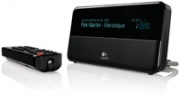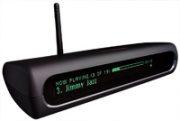For years, I've maintained a lossless audio library and used a Squeezebox as my primary music source. Unfortunately, lossless codecs are poorly supported by just about everything, so I made a second copy of my library in 256k .m4a (AAC) format. I use that library on my phones and tablet, Roku boxes and in my car. After extensive listening, I have to confess that I would be very hard pressed to differentiate between 256k MPEG 4 Audio Layer and Lossless. I am not sure I could pick the right one in a double-blind test with most material. It is not that I don't care about quality. I just can't tell the difference at all under most circumstances. I suspect that this is because m4v is vastly more sophisticated than mp3 in addition to the high bit rate.
Am I the only one who is starting to wonder if it is even worth the hassle to maintain a separate lossless library?
Am I the only one who is starting to wonder if it is even worth the hassle to maintain a separate lossless library?


